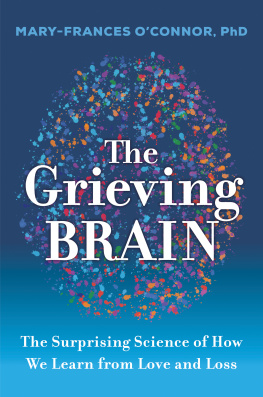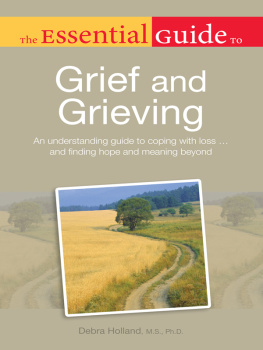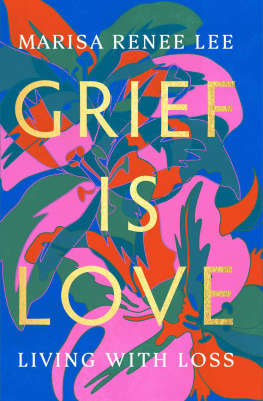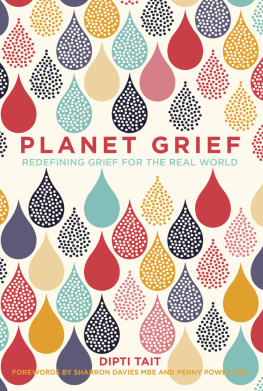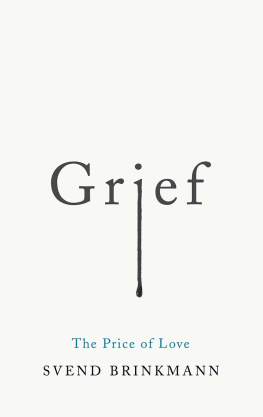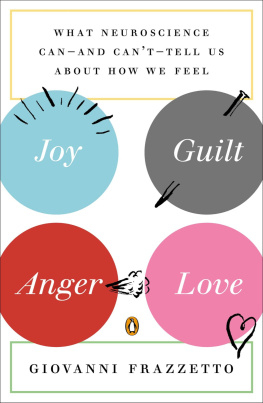F or as long as there have been human relationships, we have struggled with the overwhelming nature of grief following the death of a loved one. Poets, writers, and artists have given us moving renderings of the almost indescribable nature of loss, an amputation of a part of ourselves, or an absence that weighs on us like a heavy cloak. As human beings, we seem compelled to try to communicate what our grief is like, to describe carrying this burden. In the twentieth century, psychiatrists (Sigmund Freud, Elisabeth Kbler-Ross, and others) began describing from a more objective perspective what people they interviewed felt during grief, and they noted significant patterns and similarities among people. Great descriptions were written into the scientific literature about the what of griefwhat it feels like, what problems it causes, even what the bodily reactions are.
I always wanted to understand the why rather than just the what. Why does grief hurt so much? Why does the death, the permanent absence of this person with whom you are bonded, result in such devastating feelings, and lead to behavior and beliefs that are inexplicable, even to you? I felt certain that part of the answer could be found in the brain, the seat of our thoughts and feelings, motivations, and behaviors. If we could look at it from the perspective of what the brain is doing during grief, perhaps we could find the how, and that would help us understand the why.
People often ask what motivated me to study grief and to become a grief researcher. I think this question usually stems from simple curiosity, but also perhaps from wanting to know if they can trust me. You, too, reading this may want to know if I have walked the walk, through the dark night of death and loss, whether I know of what I speak and study. The grief I have experienced has not been any worse than the grief of others I talk to, who describe their loss and their shattered life in the wake of that loss. But I have known loss. When I was in eighth grade, my mother was diagnosed with stage IV breast cancer. Cancerous cells were in every lymph node the surgeon cut out when he did her mastectomy, so he knew it had traveled already to other parts of her body. Because I was only thirteen, I did not learn until many years later that she was only supposed to survive the year. But I knew that grief came to our house, disrupting our family life, which was already struggling through my parents separation and my mothers depression. That house sat high in the northern Rocky Mountains near the Continental Divide, in a rural town that benefited from the presence of a small college, where my father taught. My mothers oncologist described her as his first miracle: she lived another thirteen yearsa reprieve from the universe for her two teenage daughters (my older sister and me). But in this world, I was my mothers emotional tonic, her mood regulator. My departure for college, while developmentally appropriate, only compounded her depression. Thus, my desire to understand grief originated not so much from the experience I faced personally after her death, when I was twenty-six, but from a desire to understand my mothers grief and pain in retrospect, and to learn what I could have done to help her.
I went to Northwestern University just outside Chicago and was eager to escape rural life, to be going to college in a city where more people worked in one block than lived in my hometown. The first time I ever came across a mention of functional neuroimaging was when I read a few sentences in my Introduction to Neuroscience textbook in the early 1990s. Functional magnetic resonance imaging (fMRI) was brand-new technology, available to only a handful of researchers around the world. I was absolutely intrigued. Although I did not imagine that I would ever have access to such a machine, I was excited about the possibility that scientists could see into the black box of the brain.
Ten years later, in graduate school at the University of Arizona, I completed my dissertation, a study of an intervention for grief. A member of my dissertation committee, a psychiatrist, suggested that I had a great opportunity to see what grief looked like in the brain, and he recommended that I invite the participants from my dissertation study to come back for an fMRI scan. I felt torn. I had already completed the requirements for my PhD in clinical psychology. Neuroimaging was a whole new technology to learn, with quite a steep learning curve. But sometimes all the stars align for a project, and so we began the first fMRI study of grief. The psychiatrist, Richard Lane, had done a sabbatical at University College London, where some of the first methods were developed to analyze images from an fMRI scan. Lane was willing to teach me the analysis, but it still felt like an insurmountable task.
And yet the stars were aligned. It just so happened that a German psychiatrist, Harald Gndel, wanted to come to the United States so Lane could teach him neuroimaging methods, too. Gndel and I first met in March 2000 and felt an immediate connection. We shared a fascination for how the brain maintains the human relationships that help us regulate our emotions, and curiosity about what happens when those relationships are lost. Who would have thought that two researchers, born in two different countries and a decade apart, would overlap so much in their interests? Thus, the pieces of the study were in place. From my dissertation, I knew a group of bereaved people who were willing to undergo a scan. Gndel had the knowledge of brain structure and function. Lane had the imaging skills.
One more obstacle required benevolent intervention from the stars. Gndel was only able to come to the United States for a month; I was heading to UCLA for my clinical internship in July 2001. Alarmingly, the neuroimaging scanner at our university medical center was due to be replaced at the only time when we could all converge in Tucson, Arizona. But all construction projects suffer from the same issue: running behind schedule. So, in May 2001, the scanner schedule was empty, but the older scanner was still available. The first neuroimaging study of grief was done in four weeks, record time for the completion of any research project. This book offers you the results of that study, in addition to many more.
Moving to UCLA offered me the opportunity to add another area of expertise to my scientific toolkit. I completed my clinical internship there, a year of clinical work in the hospital and clinics, where I saw clients with a range of mental health and medical issues. Following my clinical internship, I embarked on a postdoctoral fellowship in psychoneuroimmunology (PNI), which is a fancy term for studying how immunology fits into our understanding of psychology and neuroscience. I remained at UCLA for ten years, transitioning to faculty, but eventually moved back to the University of Arizona. I run the Grief, Loss and Social Stress (GLASS) lab there, a fulfilling role that enables me to teach graduate and undergraduate students and direct the clinical training program. Now my days are quite varied. I spend hours reading research studies and designing new ones that will probe the mechanisms of the ephemeral experience of grief; I teach undergraduates in classes large and small; I work with other clinical psychologists around the country and the world to help shape the direction of the field of grief research; I mentor graduate students, helping them to develop their own scientific models, write manuscripts to disseminate their findings for the field, and give talks in our local community; and perhaps most important of all, I encourage each students gift for scientific thinking and urge them to show us their unique view of the world through a scientific lens.

